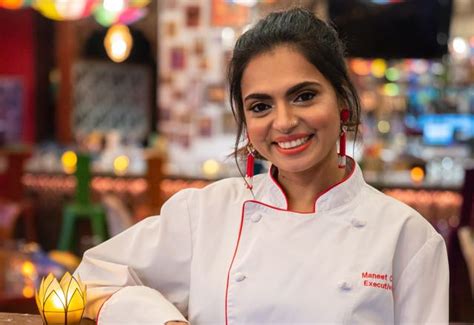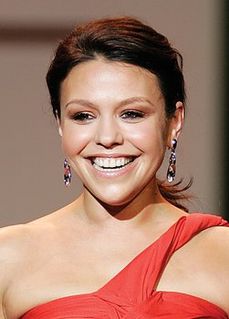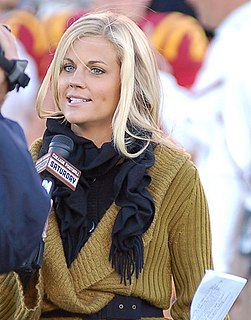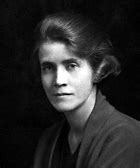A Quote by Maneet Chauhan
In India, the perception of a woman in a restaurant kitchen was that she wouldn't make it.
Quote Topics
Related Quotes
What is a woman's power then?" she asked. "I don't think we know." "When has a woman power because she's a woman? With her children, I suppose. For a while..." "In her house, maybe." She looked around the kitchen. "But the doors are shut," she said, "the doors are locked." "Because you're valuable." "Oh yes. We're precious. So long as we're powerless.
Indira Gandhi had been this very powerful, dominating, ambiguous mother figure. Ambiguous because she was tyrannical, she had imposed...she had suspended Indian democracy for a few years but she also was the woman who had defeated Pakistan in war at a time when most male politicians in India had secretly feared fighting that war, so that here in India even today Indira Gandhi is called by Indian nationalists the only man ever to have governed India.
I was always a person on my mother's hip in the kitchen. My mom really wanted her kids at her side as much as possible, and she worked in restaurants for over fifty years. And my grandfather had ten children, and he grew and prepared most of the food. My grandmother, on my mother's side, was the family seamstress and the baker. So my mom, the eldest child, was always in the kitchen with my grandpa and I was always in the production and restaurant kitchens and our own kitchen with my mom. And it's just something that has always spoken to me.
Marg Helgenberger and I were waitresses in the same restaurant in Evanston, Illinois. I'm happy to say that that restaurant has since been torn down. [...] We both had an audition for ABC soaps - different soaps, but we auditioned at the same time, and she got the part and went off to New York. Three years later, I went to L.A. So she was kind of an inspiration to me. And it makes sense that we will both be in Wonder Woman together, because we ARE Wonder Women.
In 'Purab Aur Paschim,' there's one of the nicer patriotic scenes which is patriotic without going jingoistic. There's a scene set in a rotating restaurant, where Pran, who has left India, is completely running India down and Manoj Kumar is taking up for India. And there's that song 'Jab Zero Diya.'
A woman cannot do the thing she ought, which means whatever perfect thing she can, in life, in art, in science, but she fears to let the perfect action take her part and rest there: she must prove what she can do before she does it, -- prate of woman's rights, of woman's mission, woman's function, till the men (who are prating, too, on their side) cry, A woman's function plainly is... to talk. Poor souls, they are very reasonably vexed!
A man is commanding - a woman is demanding. A man is forceful - a woman is pushy. A man is uncompromising - a woman is a ball-breaker. A man is a perfectionist - a woman's a pain in the ass. He's assertive - she's aggressive. He strategizes - she manipulates. He shows leadership - she's controlling. He's committed - she's obsessed. He's persevering - she's relentless. He sticks to his guns - she's stubborn. If a man wants to get it right, he's looked up to and respected. If a woman wants to get it right, she's difficult and impossible.
Cows in India occupy the same position in society as women did in England before they got the vote. Woman was revered but not encouraged. Her life was one long obstacle race owing to the anxiety of man to put pedestals at her feet. While she was falling over the pedestals she was soothingly told that she must occupy a Place Apart - and indeed, so far Apart did her place prove to be that it was practically out of earshot. The cow in India finds her position equally lofty and tiresome. You practically never see a happy cow in India.






































